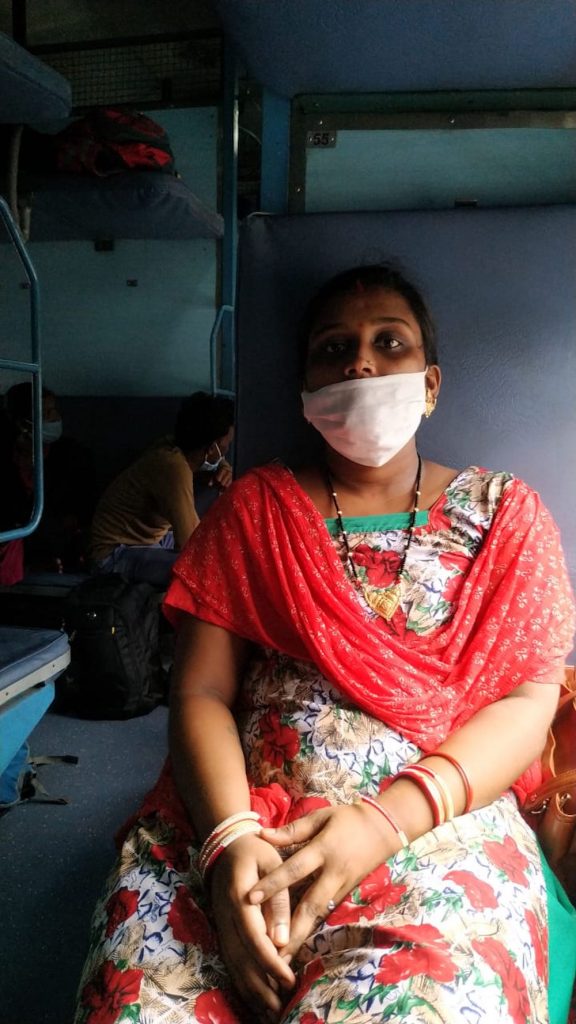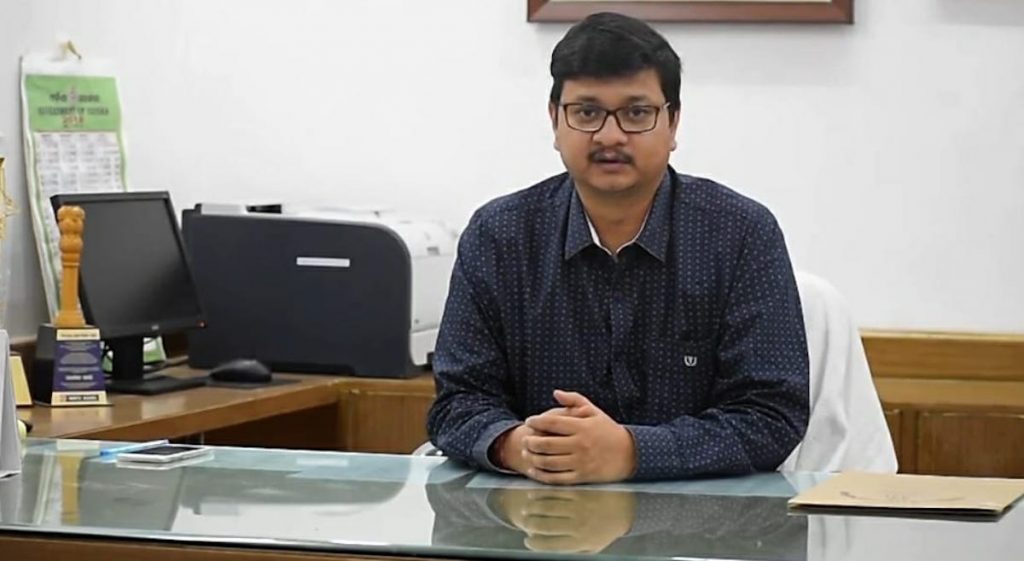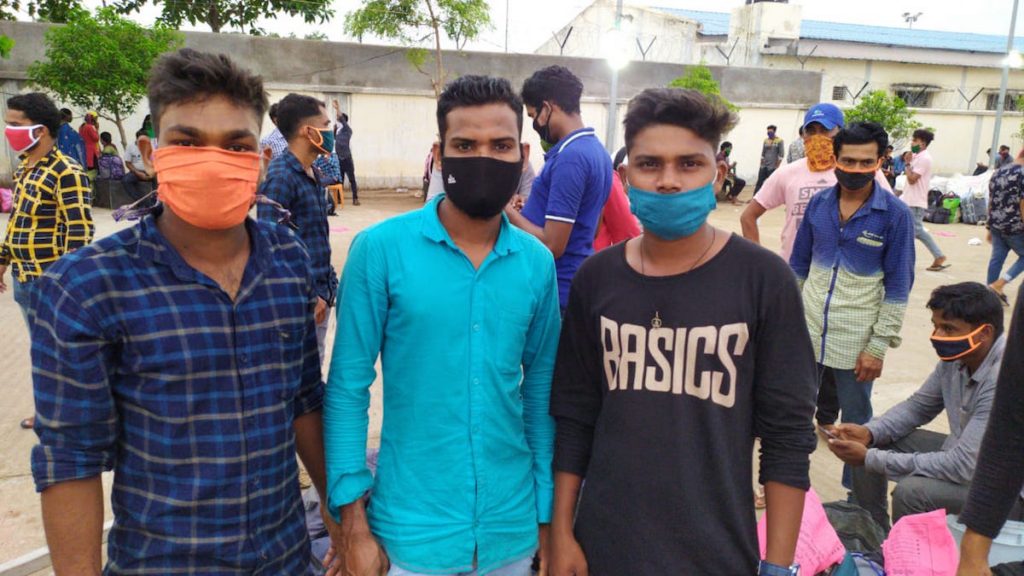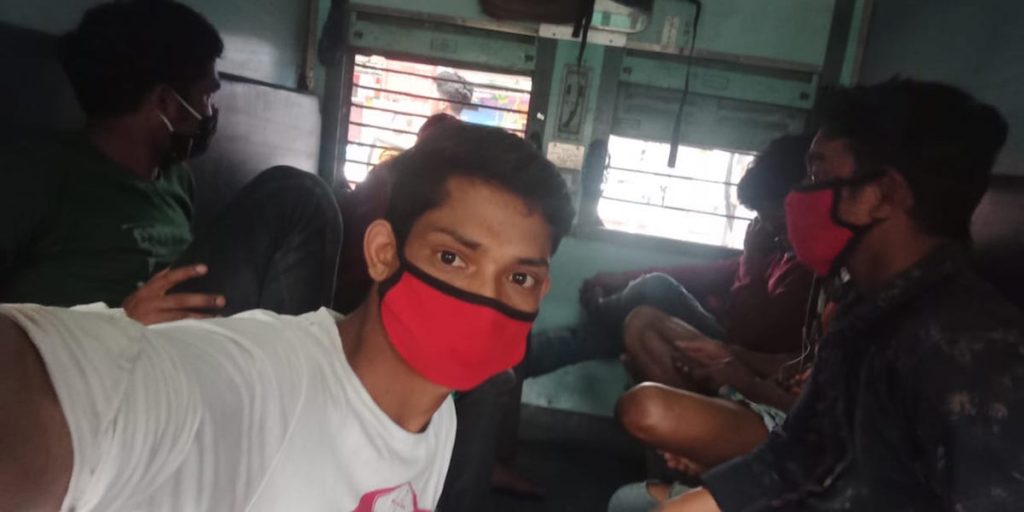Internal migrant laborer Sangita Gauda was pregnant when India’s nationwide lockdown was put in place in bid to suppress the spread of COVID-19. She was in the southern state of Kerala but was desperate to return to her family in the eastern state of Odisha thousands of kilometers away.
Gauda was one of millions of internal migrants impacted by the lockdown that was put in place March 24. For months she was unable to travel to Odisha until she was told about Sister Sujata Jena from the congregation of Sacred Hearts of Jesus and Mary who was helping stranded migrant workers.
She contacted Sister Jena and within days she was able to travel to be with her family. “I am grateful to sister who enabled my return. She ensured a safe journey and kept calling me throughout to make sure I had no problems and was comfortable,” Gauda said.

Sister Jena was moved to offer help stranded migrants after seeing media reports on their plight. Most of them were daily-wage earners who’d lost their income. Fearing starvation, many of them set out on foot undertaking long arduous journeys to their home states. Hundreds died in accidents or of exhaustion on the way.
“Every day I was reading about the struggles of the migrants attempting to return home on foot due to lack of transport,” said Sister Jena who is also a trained lawyer.
The 39-year-old nun’s first step was getting in touch with people in Bangalore — the capital of India’s southern Karnataka state — via a migrants’ WhatsApp group. There she found a video featuring a group of migrants from Odisha who were stuck in the state of Kerala; they said their employer had locked them in a room, held back their wages and even confiscated their ATM cards.

Initially Sister Jena thought she was powerless to help them, but she summed up her courage, said some prayers and made a phone call. She got to speak with them and learnt they were from one of the poorest districts of the state and how they desperately needed help.
“I was so touched and saddened, but it was a herculean task. How do I go about it I wondered?” said Sister Jena who became a nun in 2007.
A colleague gave Sister Jena the contact number of an Indian Administrative Service officer in Kerala by the name of Pranab Jyoti Nath.
“With a prayer on my lips, I contacted Nath who gave me a patient hearing. I didn’t know then that he was the labor commissioner. He told me to send him the details about the stranded migrants,” she said.

In just two hours Nath sent back a message: “The matter is settled! The employer is ready to arrange a vehicle and send them to Odisha at his own expense.”
Sister Jena said she was incredibly happy by what she heard.
“I had seen the first lights of new mercy. ‘Love is giving you a brand-new start,’ I told myself as I geared up to help more such people in need,” she said.
From then on Sister Jena dedicated herself to helping more migrants return home and word began to spread about her willingness to help others.
“My phone was ringing 24-7,” said Sister Jena who is the fifth child of teacher-cum-preacher Navin Jena and wife Promila.
It’s a commonly held belief in India that government officials rarely cooperate, but Sister Jena found Nath was a “refreshing change”. He introduced her to his officers making her task even easier.
“I sent loads of requests for help to the labor commissioner and his officers and the department acted immediately,” Sister Jena said.
Nath would go on to organize many train trips to help migrant workers get to the homes in other states.
“This was the first time I had networked with government officials. It was a wonderful experience, thanks mainly to Nath,” she said.

However, she found officials in Odisha not as gracious and who kept migrants waiting for hours before sending them to quarantine centers. One group which arrived on June 13 was kept waiting for eight hours before Sister Jena had to make some calls.
“I spoke to the village head and police, but they refused to listen. Then I spoke to the superintendent of police who helped out,” she said.
For other police officers not willing to assist migrants, Sister Jena said she even had to resort to threatening to expose them in order to get them to provide help.
‘Each day has its own challenges’
One of the migrant’s helped by the nun was Taranga Bagh.
“Sister is a beacon of hope for all of us,” Bagh said who missed a train for his home state of Odisha. “In tears I called sister who talked to officials and put me on a train to West Bengal. I got down at one of the link stations and took a bus. Sister was constantly in contact with me till I reached home,” he said.

In another case, some migrants called to say they had nothing to eat.
“So, I called the Bishop Alex Vadakumthala of Kannur who arranged food for these people. Whatever their needs I was able to help them with God’s grace,” said Sister Jena.
“Through all of it I have seen how grace unfolds in real time. The cheerful faces in the photographs they send me on WhatsApp is very soul satisfying,” she said.
Yet there’s still more to do, more people to help, the nun said.
“A lot remains to be done and each day has its own challenges. My only prayer is that I am able to live up to it,” she said.
Sister Jena’s earlier work for others has included assisting disadvantaged women and school dropouts especially after the Kandhamal anti-Christian violence in 2008 which saw 105 Christians killed, scores raped, churches vandalized, and homes torched. She counselled rape victims and traumatized youth following the violence while also helping arrange skills training, so they could have better employment opportunities.





